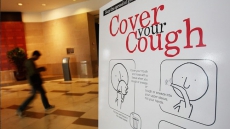Washington- The heart holds its own pool of immune cells capable of helping it to heal after injury, finds research, adding that the harmful immune cells from the bone marrow disrupts this process in adults.
These immune cells are called macrophages - whether they reside in the heart or arrive from the bone marrow.
Blocking the bone marrow’s macrophages from entering the heart protects the organ’s beneficial pool of macrophages, allowing them to remain in the heart where they promote regeneration and recovery, research on mouse model showed.
“This may explain why the young heart can recover while the adult heart cannot,” said Kory Lavine from Washington University School of Medicine in St. Louis.
“The same macrophages that promote healing after injury in the neo-natal heart also are present in the adult heart but they seem to go away with injury,” Lavine explained.
The investigators found that the helpful macrophages originate in the embryonic heart and harmful macrophages originate in the bone marrow and could be distinguished by whether they express a protein on their surface called CCR2.
Macrophages without CCR2 originate in the heart; those with CCR2 come from the bone marrow, the research showed.
The researchers found that a compound that inhibits the CCR2 protein could block the bone marrow’s macrophages from entering the heart.
“When we did that, we found that the macrophages from the bone marrow did not come in,” Lavine said.
“And the macrophages native to the heart remained. We saw reduced inflammation in these injured adult hearts, less oxidative damage and improved repair. We also saw new blood vessel growth,” Lavine added.
The study appeared in the journal Proceedings of the National Academy of Sciences Early Edition.





